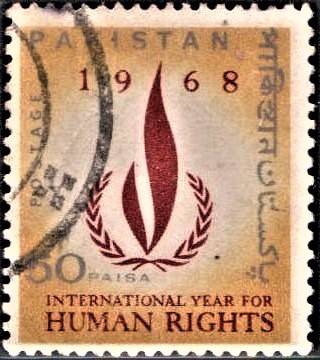
Pakistan on International Human Rights Year 1968
Complete set of 2 nos. of commemorative postage stamp on the International Year of Human Rights :
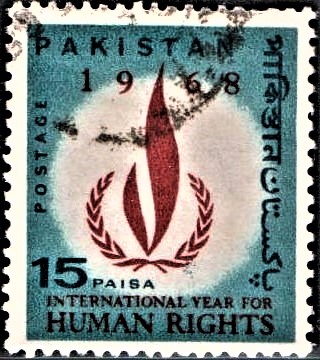
 Issued by Pakistan
Issued by Pakistan
Issued on Jan 31, 1968
Issued for : The United Nations General Assembly, noting that the year 1968 would be the 20th Anniversary of the adoption and proclamation of the Universal Declaration of Human Rights, designated that year as “International Year for Human Rights”. To commemorate this important event, Pakistan Post Office, alongwith a number of other countries, is bringing out two postage stamps of 15 and 50 Paisa denominations.
Design : The Central feature of the stamps portrays the flame, which has been adopted as the symbol of human rights, encircled at the base by the wreath of the United Nations, printed in red on both denominations. The year ‘1968’ appears at the summit of the flame whilst the wording “International Year for Human Rights” is printed at the foot of the stamps. This wording is also printed in red on both denominations. The word “Pakistan” in English is printed at the top of the stamps while the Bengali and Urdu versions appear vertically on the right. The denominations 15 and 50 Paisa respectively appear at bottom left of the stamps immediately below the wreath while word “postage” appears vertically at the top left.
Type : Stamps, Postal Used
Denomination : 15 & 50 Paisa
Colour :
15 Paisa : Light Blue, Dark Blue and Red
50 Paisa : Yellow Ochre, Grey and Red
Size of Stamps : 26 x 30 mm
Size of Prints : 23 x 27 mm
Perforation Gauge : 12½ x 14 (c)
Quantity Printed :
15 Paisa : 15,00,000
50 Paisa : 10,00,000
Number of Stamps in each sheet : 50
Process of Printing : Photogravure
Printers : The Pakistan Security Printing Corporation Ltd., Karachi
About :
- Meeting in Paris on December 10, 1948, the General Assembly of the Nations unanimously adopted the Universal Declaration of Human Rights. Undoubtedly the Universal Declaration has had a profound effect throughout the world. Its influence is reflected in a number of national constitutions promulgated since 1948. Its direct influence is evident in national laws and decrees issued in various countries and it has been cited in a number of court decisions. The Universal Declaration states :–
1. “All human beings are born free and equal in dignity and rights.” This is the simple but profound principle from which all other human rights and freedoms flow.
2. “Everyone has the right to education” – everyone, without exception, young and old, rich and poor, male and female.
3. “Education shall be free, at least in the elementary and fundamental stages. Elementary education shall be compulsory.”
4. “Technical and professional education shall be made generally available …”5. “Higher education shall be equally accessible to all on the basis of merit.”
6. “Education … shall promote understanding, tolerance and friendship among all nations, racial or religious groups, and shall further the activities of the United Nations for the maintenance of peace.”
7. “Everyone is entitled to all the rights and freedoms set forth in this declaration, without distinction of any kind, such as race, colour …., language, religion, political or other opinion, national or social origin, property, birth or other status.”
8. “Everyone is entitled to all the rights and freedoms set forth in this declaration, without distinction of any kind, such as… sex…”
9. “Everyone has the right freely to participate in the cultural life of the community … (and) to enjoy the arts…”
10. “Everyone has the right…. to share in scientific advancement and its benefits.”
11. “Everyone has the right to freedom of opinion and expression… and to seek, receive and impart information and ideas through any media and regardless of frontiers.”
12. “Everyone has duties to the community in which alone the free and full development of his personality is possible.”
- All of UNESCO’s efforts are directed towards realization of the above rights. The purpose of this Organization, as defined in its constitution, is “to contribute to peace and security by promoting collaboration among the nations through education, science and culture in order to further universal respect for justice, for the rule of law and for the human rights and fundamental freedoms which are affirmed for the peoples of the world, without distinction of race, sex, language or religion by the Charter of the United Nations.
- Pakistan Post Office, Karachi.


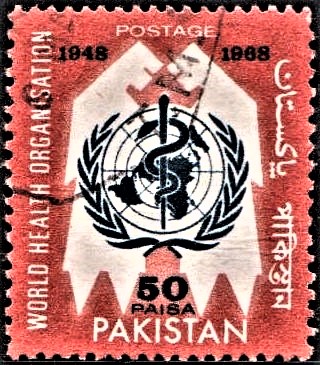
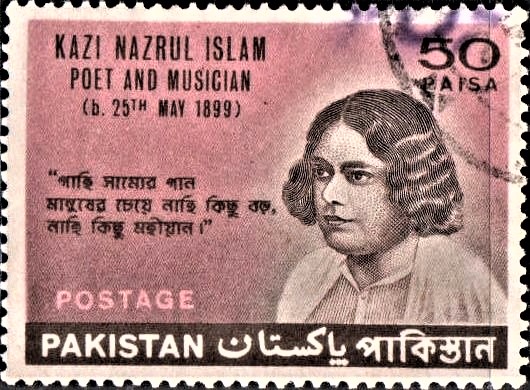
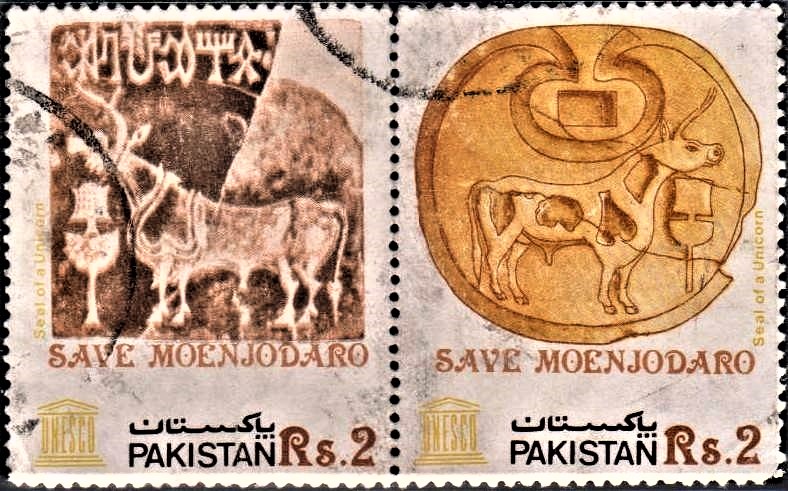
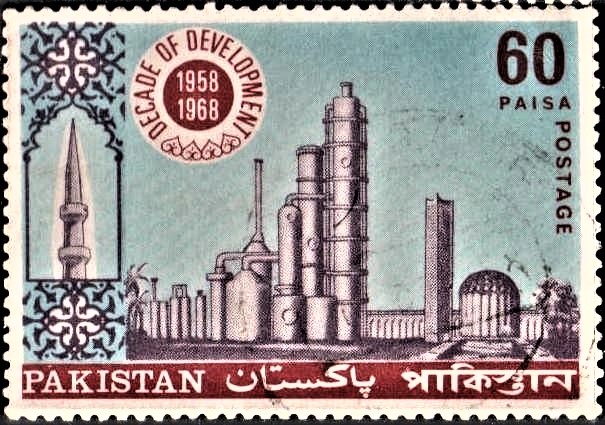
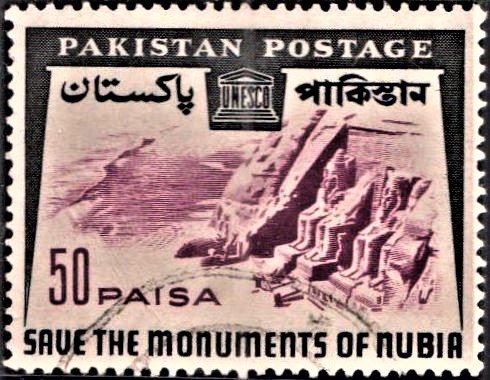
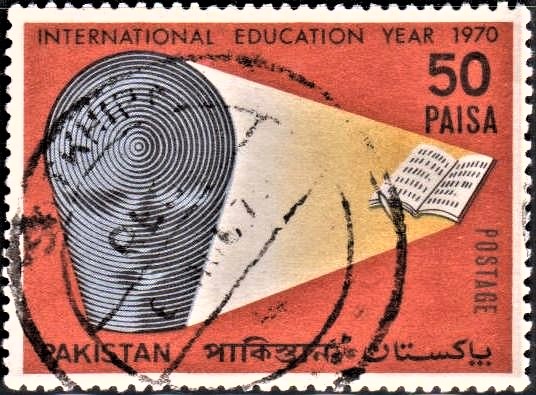
1968- 69 international year
Of human Rights
How much is $$
And institute of training and research?